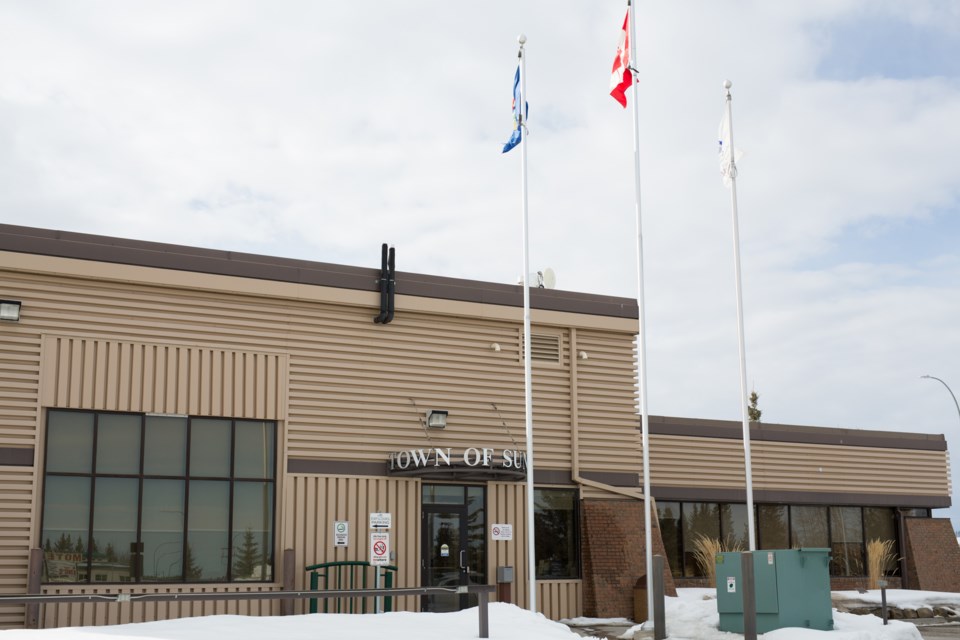SUNDRE — After requesting the re-affirmation of a budget with a modest hike in expenses that came in significantly lower than the cost of inflation, administration was directed to sharpen its pencils and find a way to maintain a zero per cent increase without cutting services.
Council tabled for two weeks a final decision on the 2021 budget following a discussion during the regular Dec. 7 meeting conducted by teleconference.
Presenting background on the budgeting process, Chris Albert, director of corporate services, reminded council the document is a continuation of the previously adopted four-year operating budget and 10-year capital plan, which is reviewed annually to identify any revisions deemed necessary in light of new data or information.
Now in its third year, the multi-year operational budget and capital plan's objective, explained Albert, is to better prepare for the future by focusing not just on current concerns but also on long-term factors in an effort to build a greater level of predictability.
“The purpose of this is to reaffirm the adoption of that entire budget, which encompasses 2021 and 2022,” he said, adding the numbers and information for those two years is largely consistent with previous financial figures presented with the original budget for 2019.
“We modified the information based on new data,” he said.
In line with inflation
As per council’s prior direction, administration aimed to keep expenses in line with with inflation, or the Consumer Price Index (CPI), which from October 2019 to October 2020 was 1.1 per cent, he said.
“Looking forward in the budget, council will probably notice that in 2022, there is a large cost increase that is anticipated. This is based on lagoon debentures, (and) the best information that we have at this particular point time. So, if everything else stays the same, we are looking at that large increase in 2022.”
Additionally, although the new provincial police funding model came into effect in 2020, the municipality’s budget won’t be impacted until 2021, he said.
“Council will notice there is an increase in costs of about $60,000.”
Providing clarity in response to previously submitted council questions, Albert also said administration does not budget for positions that are not expected to be filled.
“We do budget for positions that are vacant, but we are attempting to fill. We do not budget for positions that we do not intend to fill,” he said.
Overall, he said administration kept the budget’s cost increase at 0.5 per cent.
“So, it is significantly less than CPI. We have managed to keep it below that inflation index, and that is including an unexpected $60,000 hit for the policing model.”
Initiating a discussion, Coun. Todd Dalke moved to re-affirm the operational budget and capital plan.
No increase
Coun. Richard Warnock recognized that 0.5 per cent is a very small increase, but an increase nevertheless.
“With COVID and the issues that we have, I wonder if there is an opportunity to take two weeks and re-look at this, and see if we can’t have a budget that does not have an increase,” said Warnock.
Having attempted to follow what some other municipalities throughout not only Alberta but the whole country are doing, Coun. Paul Isaac agreed. While some jurisdictions are slightly increasing their budgets, Isaac said, “it seems that it’s a consensus in our economic times in Canada, with people losing jobs, I believe we need to help our residents as much as we can.”
Mayor Terry Leslie went a step further.
“I really think we need to get out in front of an idea to see some reductions to our ratepayers,” said Leslie, urging council to trust in administration to revise the budget in an effort to identify savings that would reduce costs.
“Five to 10 per cent would be the goal that I would be looking for, personally.”
During an unprecedented time for the community, the mayor said the municipality “needs to be like every other business….we owe it to our residents to try and figure out how we go through the exercise to do more with less.”
Despite the fiscal challenges heralded by the pandemic, which was never dreamed about when the four-year budget was first prepared, there have been some savings such as non-essential training that staff have given up as well as council’s decision to reduce travel related expenses by using technology more to conduct its business, he said.
“Yes, there were additional expenditures. But I trust our staff to go back into these budgets and try to find some cost savings.”
Doing more with less
Prior to establishing the mill rate in the spring once assessments are known, the mayor said the first step should be to re-examine the budget.
“I do not want to see reduced hours for our staff, or layoffs,” he said.
“I do not want to see reduced services…I really think that we can be bold.”
Dalke agreed that administration should always be asked to find efficiencies and cost savings wherever they can.
“More realistically, every year we have gone to them and said, ‘Can you do more with less?’” he said.
“I am a firm believer, we’re in Sundre — we (already) do more with less. However, I think (administration) have done a very good job on that. Asking them to trim it down more without (cutting) services is going to be difficult.”
Recognizing everyone, including himself, feels they pay too many taxes, Dalke said there must be a balance between maintaining future investments without pulling the strings too tight to ensure a more favourable position for recovery after the pandemic.
“Council should choose to either put projects off to reduce those yearly costs coming up, or keep investing to ensure that our economy can grow back without trimming things down.”
Coun. Rob Wolfe agreed with both perspectives. While Wolfe said the cost increase should be kept at zero, the councillor added services should not be cut, and tabled the motion to give administration two weeks to try and find savings.



